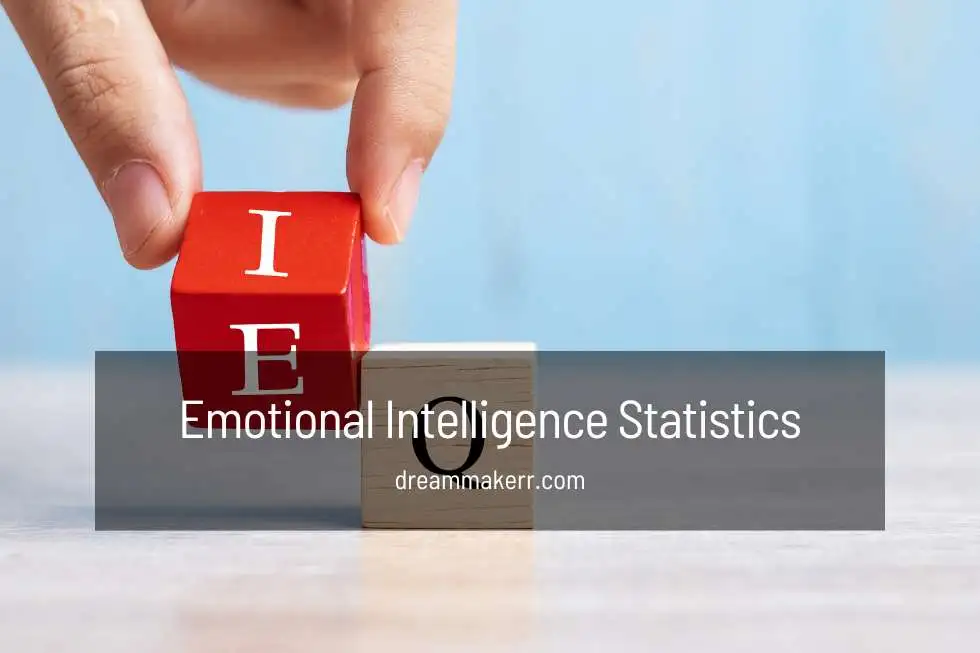On this page

What is Gratitude? 5 Ways To Be Thankful in Life
Gratitude is a term we often hear these days. Have we truly grasped its meaning and understood its immense power?
In this concise guide you will discover:
- The profound power behind gratitude
- An authentic understanding of what gratitude means
- Techniques to tap into the cosmic energy of gratitude
- The top three characteristics that define gratitude
- Methods to measure and quantify gratitude
- The tangible benefits that stem from practicing gratitude
- And that’s not all
If you’re ready to delve into the depths of harnessing the power of gratitude then this guide is tailor made for you.
Lets kick start this enlightening journey!
What makes gratitude such a powerful emotion?
Gratitude possesses a power that enables us to acknowledge and value what we possess instead of fixating on our shortcomings and wallowing in self pity.
When it comes to manifestation fostering a sense of appreciation for what we already have becomes pivotal.
- It allows us to recognize our blessings and express thanks for them.
- This mindset cultivates a sense of abundance than scarcity—an essential factor in manifesting our desires.
- Consequently expressing gratitude attracts more things worthy of our appreciation, into our lives.
- Moreover embracing an attitude of thankfulness sets off a feedback loop—a cycle that perpetuates positivity.
The greater our emphasis on the elements in our lives the more our minds actively seek reasons to be thankful for resulting in a heightened sense of happiness.
Practicing gratitude has been associated with a boost in happiness, better quality sleep, decreased stress levels and various other advantageous outcomes.
The Definition of Gratitude

The gratitude emotion is defined as the quality of being thankful; readiness to show appreciation for and to return kindness.
In various texts, Gratitude has also been defined as:
- The quality of being thankful.
- Acknowledgment of goodness in one’s life.
- The feeling of a sense of wonder, thankfulness, and appreciation for the gifts of life.
Gratitude is an emotion that involves being appreciative and thankful.
The Word Gratitude
The word gratitude is derived from the Latin word “gratia”, which means grace, graciousness, or gratefulness.
Meaning of Gratitude
Feeling of being thankful.
Pronunciation of Gratitude
It is pronounced differently in different parts of the world, but most common pronounciation is:
GRAT + UH + TYOOD
Divided into three syllables.
Synonyms of Gratitude
Here are a few words that have a similar meaning to gratitude:
- Appreciation
- Indebtedness
- Recognition
- Admiration
- Acknowledgment
Gratitude in a Sentence
You have our undying gratitude for your donation!
He has offered me gratitude for the help I gave him.
She felt gratitude for the gifts that poured down upon her.
What Is Gratitude, Exactly?

What does gratitude mean? Gratitude is the feeling of being thankful and showing appreciation for something that we have received or expect to receive.
- It involves recognizing and cherishing the things that happen to us as well as acknowledging their source.
- The importance of gratitude has been extensively studied in psychology.
- Is considered one of the most significant human emotions. (Compassion is another significant emotion)
- It has captured the attention of researchers in fields, including psychiatry, neuroscience and numerous world religions.
Interestingly while our parents and teachers are often the people we’re most grateful for they tend to receive less gratitude from us compared to others.
Gratitude has also been investigated as a character strength, in research. It has been found that cultivating gratitude can lead to experiencing positive emotions improved health, better sleep quality, increased energy levels and enhanced resilience.
- In essence, an attitude of gratitude can be defined as the quality of being demonstrating appreciation for acts of kindness while also reciprocating such kindness.
- When we express gratitude we not appreciate what we have received but also acknowledge ourselves as beneficiaries. We recognize that something has been given to us.
We truly deserve it. Expressing gratitude unlocks the potential for opportunities. It marks the start of a partnership that brings benefits. - When we experience gratitude our brains release dopamine prompting us to pursue more reasons to be thankful.
- Gratitude is an emotion that inspires individuals to appreciate and be thankful. It has been associated with advantages for our mental and physical well being.
When you genuinely appreciate something or someone, in your life it naturally leads you to reciprocate with kindness, warmth and various acts of generosity.
Three Positive Aspects of Gratitude

It has been scientifically proven that gratitude can have a powerful impact on our physical, mental, and emotional well-being. Practicing gratitude can help us feel more positive emotions, improve our health, deal with adversity, and build strong relationships.
Here are a few positive aspects of feeling grateful:
Improves Physical health
Gratitude has been linked with physical health improvements like improved immune function, lower blood pressure, and increased levels of happy hormones like dopamine and serotonin.
- It has also been linked with a greater sense of vitality and increased lifespan. As they say “Optimism and happiness lead to a longer life”.
- Another study has found that participants who kept a gratitude journal reported fewer sick days and felt healthier than those who did not keep a gratitude journal. It also aids people in sleep.
- In one study, people who wrote down things they were grateful for before bed slept better and longer than those who did not. It helps a person calm down.
Improves Mental health
Expressing gratitude and being thankful contribute to a person’s happiness and in turn, the well-being of their mental health.
- A study by the National Institute of Medicine has found that gratitude was associated with lower levels of depression and anxiety.
- Individuals who emotionalise and feel gratitude were found to have greater resilience and a firm stance in the face of stress. P
- eople who are grateful also tend to be more forgiving, helpful, and outgoing.
Improves Quality of life
Gratitude also helps us build stronger relationships.
- A study has found that couples who expressed gratitude towards each other felt more connected and closer to one another.
- A grateful disposition can increase feelings of connectedness and social support.
- People who are more grateful report feeling less lonely and isolated.
- Gratitude is a positive emotion that can have many benefits in our lives.
Below are just a few of the ways in which gratitude can improve our lives:
- Gratitude can increase our overall well-being and happiness levels.
- Gratitude can reduce stress and depression.
- Gratitude can increase self-esteem and reduce social comparisons.
- It can make a person more optimistic about life.
- It helps a person overcome difficult times and improves their focus on the good things.
Did you know that giving thanks makes you happier, according to Harvard Health Review?
If a person wants to incorporate gratitude into their life, here are a few simple ways to get started.
How to Express Gratitude In Your Life?

Gratitude comes in different forms and it can be expressed to someone you know, someone you have met recently, or even a complete stranger.
- When you express gratitude, you might say “Thank you,” “I am grateful,” or “That was very kind of you.”
- You can also show gratitude by doing something nice for someone else, like cooking dinner for a friend who’s had a tough week.
- No matter how you choose to do it, practicing gratitude can lead to a host of benefits for your mind, body, and soul.
- So why not give it a try? You might be surprised at just how much better you feel.
Here are a few ways you can improve your quality of life by being grateful:
First, keep a gratitude journal.
Every night before bed, take a few minutes to write down three things that you’re grateful for. If you’re struggling to think of anything, try focusing on the small things, like a nice cup of coffee or a sunny day.
- You can also try expressing gratitude to the people in your life.
- Take a moment to tell your partner, friend, or family member how much you appreciate them. Or, write a thank-you note to someone who has done something nice for you.
- Finally, try to focus on the positive aspects of your life, even when things are tough.
- When you’re feeling down, take a few minutes to reflect on all the good things in your life. This can help shift your perspective and make it easier to see the silver lining in any situation.
- No matter what you write about, the important thing is that you take the time to express your thoughts and feelings.
- Writing can be a therapeutic way to deal with stress, anxiety, and other difficult emotions.
So, don’t be afraid to let it all out on the page!
Signs of Gratitude
How can you tell if someone is feeling gratitude? Gratitude has many expressions. Some people express it with words and others with actions.
Here are some signs that may indicate someone is feeling grateful:
- Saying thank you
- Giving compliments
- Smiling and laughing
- Showing appreciation
- Helping others
How Psychologists Are Measuring Gratitude? gratitude in psychology

Psychologists have developed several ways to measure gratitude. One of the most popular methods is the Gratitude Questionnaire (GQ), which Robert Emmons and Michael McCullough developed.
The GQ consists of 14 items that ask people to rate their agreement with statements such as “I have been grateful for my blessings” and “the answers indicate how grateful a person is overall.
Measuring gratitude in psychology
Other measures of gratitude in psychology include the Gratitude Subscale, the Gratitude Resentment and Appreciation Test, and the Attitudes toward Happiness Scale.
Ask yourself questions to determine your level.
Answer these questions to learn more about your propensity to feel grateful.
- Do you feel as if you have a lot to be grateful for in your life?
- Would your gratitude list be lengthy if you made a list of everything you are grateful for?
- When you consider the globe, are there many things to be thankful for?
- Do you ever feel like your appreciation for life and other people has improved as you’ve gotten older?
- Do you ever find yourself admiring someone or something?
- Do you value a wide range of individuals in your life?
You’re probably quite grateful if you said yes to most of these questions. If you said no to many or all, there is something you can do to enhance your appreciation.
What is Gratitude and the Law of attraction

When you concentrate on the positive aspects of your life, you will begin to attract more of the same. It’s a good example of the Law of attraction in action.
You will attract more wonderful things into your life if you appreciate what you have.
- One of the most powerful emotions we may experience is gratitude. It pulls you up and opens your heart.
- It raises you from a lower to a higher state of consciousness because your motivations and growing vibrations are more closely linked to love.
- On the other hand, many individuals are clinging to the lower frequencies of hate and fear that are so widely preached on television.
- Being appreciative can help you discover possibilities for a better life, more happiness, and a higher quality of life.
Gratitude and Happiness
Gratitude and happiness are linked. It isn’t easy to feel anything else at the same time as appreciation.
It’s impossible to be both furious and appreciative at the same moment. Your entire perspective changes as you focus on what you have to be grateful for, and you begin to see things more positively.
According to some research, thankfulness can boost your happiness levels by up to 25% right away.
The Importance of Gratitude In Life
The importance of gratitude in life, and using it, has been interlinked to a variety of mental, physical, and health advantages.
Some of these benefits include:
- When you’re appreciative, your biological systems vibrate with positive energy, which improves your physical health.
- Increased emotional well-being because appreciation increases happiness and pleasure while lowering stress, anger, and resentment.
- Increased psychological well-being and life satisfaction because gratitude makes you feel more connected and supported.
- A better sense of well-being because appreciation promotes a more optimistic attitude toward life.
- Improved relationships due to the enhanced satisfaction, trust, and intimacy that thankfulness brings.
- Improved sleep quality due to gratitude’s ability to reduce negative emotions.
- Increased empathy and a reduction in hostility.
- Stronger relationships because when you are grateful for someone, you are less likely to start a dispute or conflict with them.
- Increased self-esteem, as gratitude encourages more positive self-talk and a focus on the positive aspects of your life.
- Increased job satisfaction, as gratitude can aid in the creation of a positive work environment and strengthen relationships with coworkers.
- 11. You will be more resilient in the face of disease if you have a happy view of life since your immune system will operate better.
How To Become More Grateful
Trying to be aware of and appreciative of the positive in your life is easier said than done.
- Write down your gratitude in your journal.
Each day, write down three things you’re grateful for to help your brain focus on the good. - Express your gratitude to others.
Express your gratitude to the individuals in your life. It will make them happy, but it will also help them achieve their goals. - Pay it forward.
Don’t expect anything in return when you do something nice for someone else. - Don’t take things for granted.
Appreciate the small pleasures in life, such as a beautiful day or a delicious cup of coffee. - Practice mindfulness.
Be present at the moment and savor the moments.
How Do I Practice The Feeling of Gratitude?

According to psychology professor Robert Emmons, an appreciation researcher at the University of California, Davis, there are two critical components to practicing gratitude.
- We reaffirm the great fortune we’ve been blessed with.
- We understand how important it is for others to bring goodness into our life.
Most of us recognize the value of appreciating people who help us or simply expressing our gratitude for our things in life. According to a study, gratitude has been linked to a range of benefits, including an improved immune system and sleep patterns, a sense of hope and more joy and pleasure, being more helpful and generous, and feeling less lonely and isolated.
Do you want to take advantage of some of these advantages? Begin by cultivating a gratitude habit.
5 Ways To Be Thankful
- Be thankful for your life:
It’s easy to take our lives for granted, but it’s important to remember how fragile life is and how quickly it can be taken away from us. Make sure to express gratitude for each day you’re alive and healthy. - Be thankful for your loved ones:
The people we spend time with everyday often become our family. We should express how thankful we are for their presence in our lives. - Be thankful for your enemies:
It sounds strange, but being grateful for the people who have wronged us can actually help us to forgive them and move on from the anger and hurt we feel. - Be thankful for your challenges:
they help us grow and become stronger people. They force us to become more resilient and to develop new skills. - Be thankful for your blessings:
Take some time each day to think about the things in your life that you’re grateful for, no matter how small they may seem.
When we take the time to focus on all the good in our lives, it can be easy to see just how blessed we really are.
Be thankful for life itself: every day is a gift, and we should cherish each one as if it might be our last.
Gratitude daily
“The little things?” says Jon Kabat-Zinn.
10 Ways to Practice Daily Gratitude What about the little things? They’re not small.” Saying thank you or holding the door open for someone might shift the tone of your entire day.
Focusing on gratitude is one of the most effective methods to reprogram your brain for more joy and less stress.
Here are ten easy ways to convey gratitude:
Keeping a gratitude journal is a good idea.
Make it a habit to remind yourself of the blessings, grace, benefits, and positive things you have. You can weave a sustained theme of gratitude into your life by recalling moments of gratitude related to commonplace happenings, your traits, or important persons in your life.
Keep in mind the bad.
It’s helpful to recall the difficult moments you’ve gone through to be grateful for your current situation. You create a clear contrast in your mind when you remember how difficult life used to be and how far you’ve gone, and this difference is fertile ground for gratitude.
Three questions to ponder.
Use these three questions to reflect on your relationships with your parents, friends, siblings, coworkers, children, and partners: “What have I gained from ?” “What have I given to ?” and “What issues and difficulty have I caused?”
Don’t Keep Your Gratitude to Yourself.
Could you share it with Others? Gratitude has been shown to build relationships in studies. So, remember, the next time your partner, friend, or family member accomplishes something you admire, express your gratitude.
Bring Yourself to Your Senses.
We understand what it means to be human and what a great miracle it is to be alive through our senses—the ability to touch, see, smell, taste, and hear. The human body is not just a marvelous construction but also a gift when viewed through the lens of thankfulness.
Use Visual Reminders to help you remember.
Forgetfulness and a lack of conscious awareness are the two of the main barriers to appreciation, and visual reminders can act as triggers to prompt thankful thoughts. Other folks are frequently the best visual reminders.
Make a promise to yourself to practice gratitude.
According to research, swearing to conduct a behavior increases the likelihood of the action being carried out. As a result, compose your thankfulness vow, which may be as simple as “I promise to count my blessings every day,” and display it somewhere you’ll see it every day.
Keep a careful eye on what you say.
Gifts, givers, blessings, blessed, fortune, fortunate, and abundance are used by grateful individuals in their language. In thankfulness, you should focus on the excellent things others have done on your behalf rather than on how inherently good you are.
Act as if you’re going through the motions.
Smiling, saying thank you, and sending letters of gratitude are all examples of grateful movements. You can increase the frequency with which you feel grateful by “going through appreciative motions.”
Consider thinking beyond the box. If you want to get the most out of your thankfulness muscles, you’ll have to think outside the box to find fresh scenarios and circumstances to be grateful for. Please share some of the unique ways you’ve discovered to cultivate gratitude.
Conclusion
Gratitude refers to the act of showing appreciation and being thankful for something that we have received or expect to receive.
- It involves acknowledging and savoring the things that happen in our lives along with recognizing their sources.
- Psychological research has consistently demonstrated the significance of gratitude as a human emotion.
- This subject has garnered interest within the scientific community including fields like psychiatry and neuroscience.
- Moreover it is also a point in various world religions.
- However we often tend to overlook expressing gratitude towards those individuals who deserve our thanks, such as our parents and teachers.
- Gratitude can be considered a character trait that can enhance our well being in several ways.
By practicing gratitude we can experience positive emotions enjoy better overall health sleep more soundly feel energized and become more resilient. To cultivate this trait further it is essential for us to make an effort to express our gratitude regularly.
In essence gratitude is defined as a quality of being appreciative and willingly expressing thanks while also reciprocating kindness.
In words it signifies being grateful for what we have received and acknowledging its value. When we express appreciation, for what we have been given or experienced in life it reinforces our sense of being beneficiaries.
We. Appreciate that we have received something that we rightfully deserve. Being grateful not brings us joy but also paves the way for new opportunities. Initiating a partnership that benefits both parties is an experience.
Expressing gratitude triggers the release of dopamine in our brains, which further motivates us to seek more reasons to be thankful.
Research has shown that expressing gratitude is associated with positive effects on both our mental and physical well being.
When we genuinely feel grateful for something or someone, in our lives it naturally evokes feelings of kindness, warmth and generosity within us.
FAQs
What Is Gratitude?
what is gratitudeIt’s the quality of being thankful for what you have, and showing appreciation. It is a mindful acknowledgment of all that we have been given. When we focus on gratitude, our whole outlook changes. We see life from a place of abundance instead of scarcity. Gratitude helps us to shift our attention away from what’s wrong and direct it towards what’s right.
What is gratitude in simple words?
Gratitude is a feeling of thankfulness and appreciation. It is a recognition of the good things that we have received, either from others or from our own efforts.
Why is gratitude a unique quality?
There are many reasons why gratitude is a unique quality. One reason is that it is an emotion that can be felt in response to both positive and negative experiences. What makes it more unique is that it fills a person with positivity and optimism.
The best thing about gratitude is that it can be learned and practiced by anyone!
What can we do to express gratitude to god?
There are many ways to express yourself to God. One way is to simply say “thank you.” Another way is to do something nice for someone else, in God’s name. Additionally, some people choose to express their gratitude through prayer or meditation. Ultimately, there are endless ways to show appreciation and thanksgiving to the divine force.
Why is gratitude a powerful quality?
Gratitude is definitely a powerful quality. It allows us to appreciate the good in our lives, which can help us maintain a positive outlook during tough times. Additionally, expressing gratitude has been linked with increased levels of happiness and satisfaction. So overall, gratitude is pretty awesome!
How is gratitude a secret of happiness?
Gratitude is the secret to happiness because it allows us to see all the good in our lives, even during difficult times. When we focus on what we’re thankful for, our brains release dopamine and serotonin, which makes us feel happy and content.

Petri Maatta is a mindset coach and neuroscience-focused author with 15 years of experience in personal transformation and success psychology. After seven years of business failures, he discovered the power of manifestation through a Fortune 500 mentor. Now, he shares neuroscience-backed strategies through DreamMaker membership, helping others transform their businesses and lives on their own terms.
Read My Story here.
Share This Story, Choose Your Platform!
You want to manifest a new car, but you’re wondering: Does this really work? Here’s
Many smart individuals are often linked with having a high IQ. However, according to emotional
According to online dating statistics over 90% of people believe in love at first sight,




